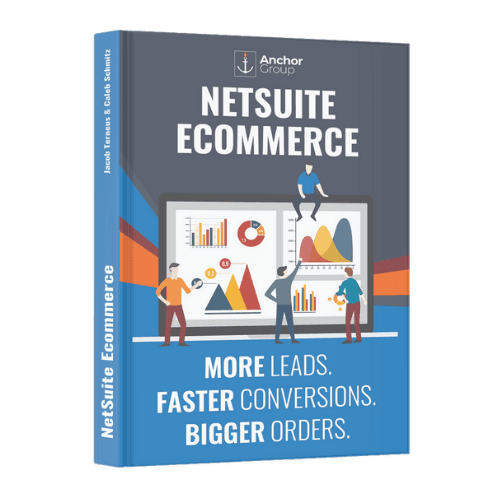There is a lot to learn about SuiteCommerce when first considering it for your business. This is the best beginner guide to helping you understand why SuiteCommerce differs from other NetSuite ecommerce options.
What is SuiteCommerce, and what does it help you do with NetSuite?
Most people have heard about NetSuite because it is taking the cloud ERP world by storm. It has been the #1 rated cloud ERP software for several years and continues to take over the market. For good reason, too. It’s a powerful yet complex tool to drive a business to incredible success. You might not know that NetSuite has its own ecommerce platform called SuiteCommerce. This ecommerce platform is only available for NetSuite users because it is integrated into the NetSuite platform. Let’s make a small correction because you don’t actually have to integrate SuiteCommerce into NetSuite; that part is already complete. We’ll discuss this a little later.
What are the different versions of SuiteCommerce?
There are two main versions of SuiteCommerce: SuiteCommerce Advanced and SuiteCommerce Standard. When companies compare them, they are pretty much the same at face value. The main difference is that SuiteCommerce Advanced gives developers more access to change the source code, making nearly nothing impossible to customize. Depending on your business, this may be important if you are positioning your web store to do things that haven’t been done before or are not commonly done.
SuiteCommerce Standard recently was announced in the last couple of years as the flagship SuiteCommerce product. It still allows for most customizations, but it is best practice to talk about your goals for the ecommerce platform when considering purchasing it. A NetSuite commerce partner can help with this process to ensure you have covered all your bases.
What are the benefits of SuiteCommerce?
The primary benefit of SuiteCommerce to other platforms is that it directly connects to NetSuite without an integration. You won’t need any integrators like Celigo or even a custom integration. If you use Shopify, Wix, or other ecommerce platforms, you need an integration to access the NetSuite data. You can skip all this and have direct access to all of your NetSuite data to use on the web store by purchasing SuiteCommerce.
Why you should use Themes, Extensions, and SuiteApps?
NetSuite has some premade SuiteCommerce themes that might get you close to what you need, but you can also purchase them from a NetSuite commerce partner.
Extensions are another consideration because they allow for added functionality. An example is displaying a custom NetSuite record in the ‘My Account’ portion of the webstore.
SuiteApps are premade integrations that connect to NetSuite. Paystand has a SuiteCommerce SuiteApp that plugs into the payment process, allowing users to pay invoices via their ‘My Account’ with all the payment options.
Bonus Pro Tips
- Utilize sandbox in the post-go-live of your SuiteCommerce website
- Don’t be afraid of customizations because they will help streamline your business. Just make sure you have fully tested them in sandbox
- Check out themes and extensions made by companies so you can purchase already-created customizations
- You don’t need to use NetSuite to implement, and you will get more direct responsive attention using a partner
- Start preparing your website mockups early if you have an in-house graphic designer. This helps you think through all the things you want on your website. Check out these SuiteCommerce themes for a SuiteCommerce Website example
- Ask your NetSuite commerce partner what pre-made options exist when you think you may need a customization. This helps to cut the cost in some areas.
Oracle NetSuite Alliance Partner & Commerce Partner
Hopefully, this post gives you something to work with while trying to understand NetSuite and what it can do for your business. If you have questions about NetSuite or SuiteCommerce that were not addressed in this article, feel free to contact us at any time. Anchor Group is a certified Oracle NetSuite Alliance Partner & Commerce Partner, equipped to handle all kinds of NetSuite and SuiteCommerce projects, large or small!

We are a premium SuiteCommerce agency that creates powerful customer portals. Unlike our competitors, we have already solved your problems.
FREE SuiteCommerce Book
Want to learn more about SuiteCommerce and how it can benefit your business? We'd like to give you a FREE NetSuite Ecommerce paperback book! Here at Anchor Group, we pride ourselves on having the heart of a teacher. This is just one of the many ways that we follow through on that value. So, what are you waiting for?
Order the free SuiteCommerce book today, and we'll even pay for shipping!

Tagged with Troubleshooting
